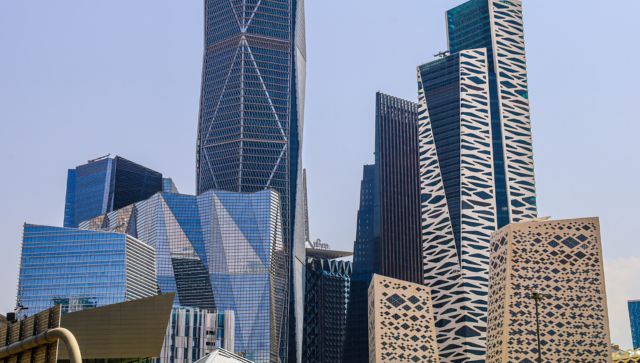The tourism sector has globally bounced back strongly. This, of course, doesn’t just include leisure travel alone, but travel for business, education and even healthcare. While it hasn’t reached 2019 levels just yet, the projections have been rather promising with an 80-95 per cent recovery this year according to UNWTO Barometer, and this is reflected in the recently concluded World Tourism Day celebrations in Riyadh by the United Nations World Tourism Organisation (UNWTO). The UNWTO is an intergovernmental organisation with 159 Member States, 6 Associate Members, 2 Observers and over 500 Affiliate Members. The General Assembly is the supreme organ of the organization. The Executive Council takes all measures, in consultation with the Secretary-General, for the implementation of the decisions and recommendations. The 2-day celebrations in Riyadh brought together the best and brightest minds from the world of tourism, hospitality and& education. Many prominent dignitaries from Saudi Arabia, India, Tanzania, Cyprus, Spain, Croatia, South Africa, and other member countries were a part of it. This was the largest gathering of the global tourism sector in the 43-year history of World Tourism Day. To quote António Guterres, UN Secretary-General: “Tourism is a powerful force for progress and mutual understanding. But in order to deliver its full benefits, this force must be protected and nurtured. On this World Tourism Day, we recognize the vital need for green investments to build a tourism sector that delivers for people and planet. So let us all do more to harness the full potential of sustainable tourism. Because investing in sustainable tourism is investing in a better future for all.” The theme for 2023 was Tourism and Green Investments and it centred on the need for using investments to bring about the development of human capital that the tourism industry needs; to develop destinations in ways that go beyond tourism, creating prosperity; and ensuring that travel becomes more sustainable. In essence, the focus through the different sessions remained on people, planet, and prosperity. The agenda for the first day closely echoed this theme through sessions on investments in people, destinations, and sustainability, in addition to celebrating innovation and entrepreneurship via commemorating the winners of the Women in Tech Start-Up Competition. Day Two focused more deeply on how investments can drive a sustainable future for the tourism industry and aimed at drawing attention to the various forms of partnerships that can make this happen. With bigger projections for the tourism sector in place, these important conversations happened at the right time, with the right set of stakeholders. The UNWTO’s mission when it comes to investments is to promote the development of competitive and sustainable economic growth via tourism through 3 key objectives
- Enhance access to finance and investments where they are needed most, by fostering connections to a high-level global network
- Promote investments that focus on boosting job creation and sustainability in tourism
- Develop sustainable investment mechanisms by partnering with the right stakeholders who can mobilise resources in the right channels
These have the potential to translate into some incredible real-world results and help inch closer to the different SDG Goals and the Agenda 2030. Through this celebration in Riyadh, the UNWTO also tried harnessing the power of the individual, the innovator, the entrepreneur, and the startup in solving some of our biggest problems. The Startup Competitions have emerged as an exceptional platform for great ideas to continue scaling up through the entire global tourism ecosystem. This support is translated into mentoring, exposure to the sector and investments. The startup competitions fall into two large categories - generic competitions that span the entire tourism value chain, and the thematic ones, focused on a particular product. On World Tourism Day 2023, the Women in Tech Start-Up Competition Finale also came to a close. Another key announcement was the unveiling of the Riyadh School of Tourism And Hospitality, co-founded by the Ministry of Tourism of Saudi Arabia and India in collaboration with UNWTO. The academy brings together a first-of-its-kind curriculum of higher education academic and elite vocational training to reimagine tourism education by offering rich, diverse, and innovative learning experiences. It is set to not only bridge the critical skills gap in the tourism sector globally but also empower the next generation of tourism leaders. His Excellency Ahmed Al-Khateeb, Minister of Tourism of Saudi Arabia, captured the sentiment of the moment beautifully, “The Riyadh School of Tourism and Hospitality is Saudi’s gift to the world. As we invest in the next generation of tourism professionals, we are not only securing the industry’s future but also fostering a legacy of excellence that will drive prosperity, stimulate individual growth of citizens, and foster cultural exchange for years to come.” Overall, the UNWTO requires that sustainable tourism should make optimal use of environmental resources, maintain essential ecological processes and conserve natural heritage and biodiversity. It should also respect the socio-cultural authenticity of host communities, conserving their built and living cultural heritage and traditional values, and actively contribute to inter-cultural understanding and tolerance. It lays special emphasis on ensuring viable, long-term economic operations that provide socio-economic benefits to all stakeholders fairly, including stable employment, earning opportunities and social services to host communities, with an aim to eradicate poverty from these communities. The coming together of the right minds, at the right time, at the right place, will go a long way in shaping the world for years to come, and the World Tourism Day celebrations in Riyadh clearly indicate towards a positive onset.


)

)
)
)
)
)
)
)
)



